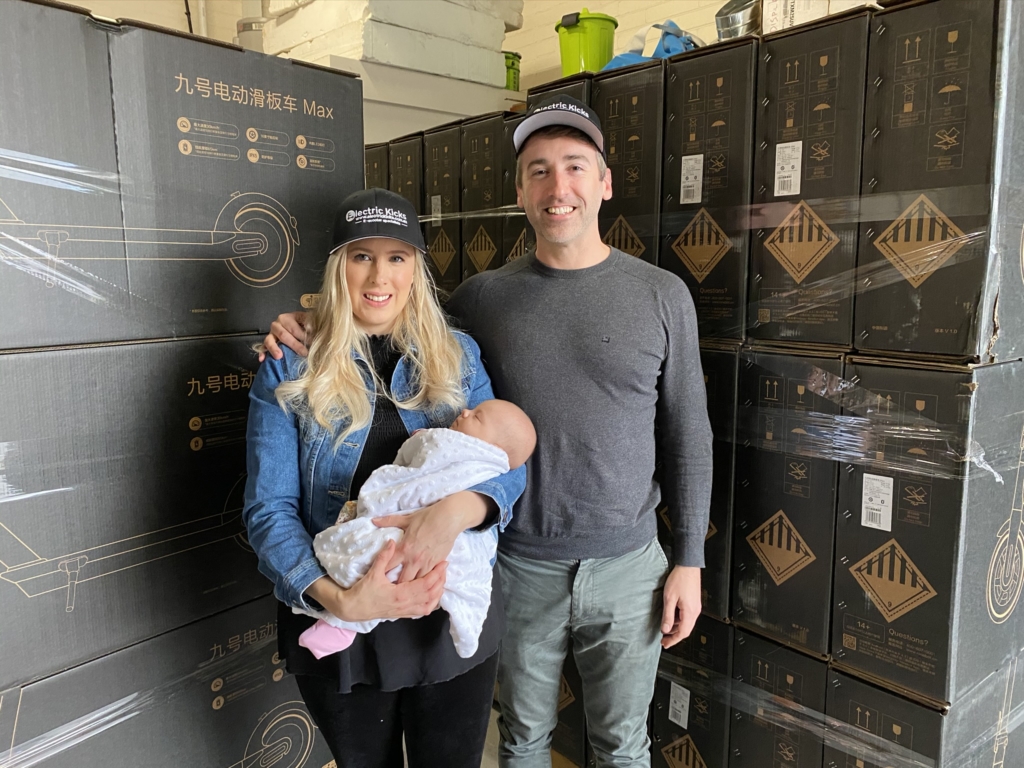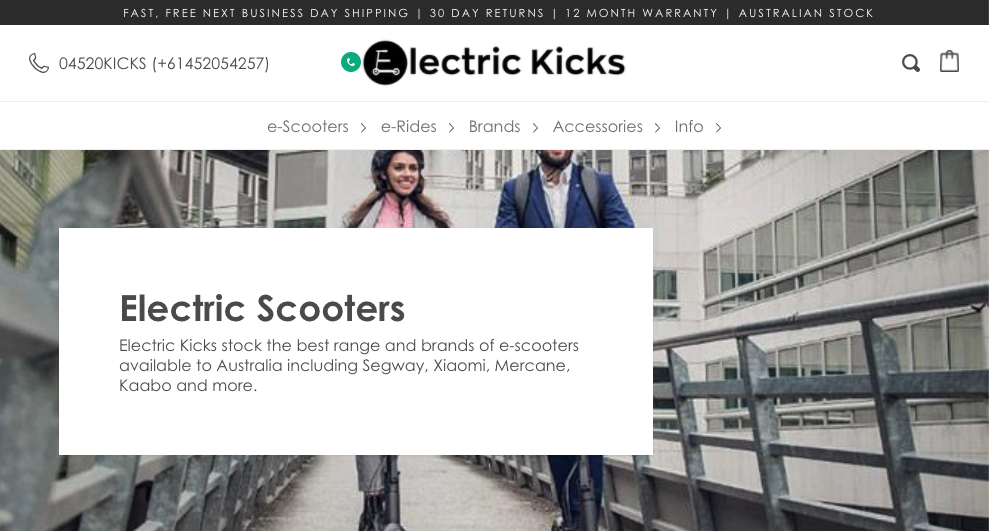Electric Kicks protects & audits store in real-time
Chris Gryg wasn’t planning on launching another business at the time. While vacationing in Paris back in 2018, taking a break from two other online ventures, he stumbled across piles of discarded scooters while exploring the city. It’s the first time the Australian native had seen an electric scooter, let alone the massive rideshare companies which rent them out. He and his wife immediately pulled out their credit card.
“From the first time it was such a buzz; we could just travel around everywhere and see everything really quickly,” says Chris “I didn’t have any ideas about a business. I just wanted to get one because they’re so cool!”
When he got back to his hometown of Melbourne, he ordered one right away. While zipping around town he was peppered with questions about the scooter. “I ordered a couple and then sold them in just three hours,” says Chris, “and it’s growing – the market in Australia has absolutely exploded.
First Australia, then the world
Electric Kicks now has a flagship store in Melbourne where they show off the scooters and let people try them out. All the products are manufactured by third-parties. They made the decision early to focus on distribution, customer service and marketing. Although the bulk of duties are mostly handled by Chris and his wife, they have expanded their team to help with development, graphic design and marketing.
Even with a traditional storefront, the growth of Electric Kicks has been driven by online sales. The company is now growing internationally, building a new website and hitting sales targets in the high six-figures. Although he and his wife have little time between growing a business, running a warehouse and raising a newborn baby; they are excited for the future. “We’re gonna grow pretty quickly in the next few years, so I’m just happy to really feel
that”, says Chris.
Third store’s a charm
This is not Chris Gryg’s first step into ecommerce waters. He has built and launched two other stores using Shopify’s software. Before selling electric scooters, he was selling diaper or “nappy” bags. “I wasn’t even a parent at the time”, says Chis,
“I reckon the timing could have been better (laughter)!” The store wasn’t a winner but he says it was a solid education on the level of work needed to make a store successful.
“I was doing everything. I was setting the templates, setting up automations to connect the store to twelve different suppliers and many other time-consuming things. I was spending maybe ten hours a day setting up this project. I got to the stage, where if something went wrong – it would have been so many hours of work down the drain.”
Having a background in digital marketing, Chris was skeptical that Shopify’s platform would backup every single piece of information and content that made up his store. He took to google, looking for something to safeguard his new business. The search led him to Rewind Backups for Shopify.
Does Shopify automatically back up everything or does it just store my data? I think a lot of people would assume that it would just be fine. It’s in the cloud; so nothing’s gonna happen.
The sky has limits
Ecommerce platforms typically follow something called the “Shared Responsibility Model.” This means they protect and backup everything which makes their software run. In other words, you can always store your data. But there’s no guarantee that when you log in, all the critical information and content you entered, will still be there.

It’s all the sections that take months to build up and perfect: product descriptions, images, pages, customer lists, order histories, themes, menu navigation and more. It’s the data and content merchants depend on to drive sales.
Online ecommerce platforms simply can’t locate these things in order to restore them for an individual shop. It would be like looking for a needle in a field of haystacks. So the responsibility falls on the store owners.
Backing up to build something new
When building out Electric Kicks, Backups for Shopify was one of the first apps Chris installed. He was always tweaking and iterating things on the new site. Rewind continually saved all the versions. “There were a number of little things that I had to go back and forth on”, says Chris, “I’ve made a ton of edits and I’ve thought, ‘I’m not too happy with that’, so I’ll actually backtrack.”
He says this safety net comes in handy when testing and evaluating new apps. “Often if you delete something they leave a legacy code. And this code sometimes conflicts with your template. The apps I had installed and had been testing were fine but they were also conflicting with work that I was doing. It ended up rendering the site, pretty much useless to visitors.”
To go through all that code and have a developer fix it would have been so expensive.
Building towards the future
Electric Kicks is now expanding its product line into go-karts and electric bikes. And with the investment in new inventory, they are also investing heavily into a new website. Chris says having Rewind from the beginning, helps de-risk the capital he is putting into this expansion. “We’re spending money with development teams and we’re spending significant time building out the business. To have something go wrong or is scary.”
We’re a fast paced business. It’s hard enough growing. It would be nearly impossible, to restore this investment, without Rewind.



